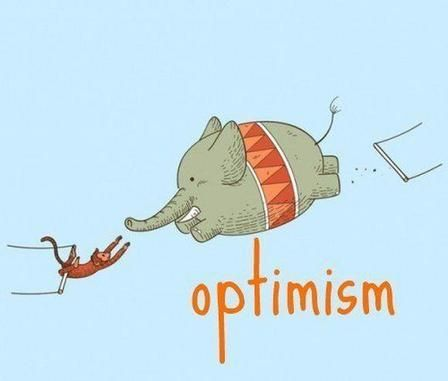3 Simple Ways to Become an Optimist
Before you become a cheerful optimist, let’s talk a bit about where optimism comes from—your brain. Everyone has a brain, but not everyone has figured out the instructions yet! Our brains are designed so that some areas responsible for changing our thinking and behavior respond to the pursuit of something wonderful and amazing. Other areas react to avoiding all sorts of horrors and fears.
There’s a third part of the brain that compares our current reality with what we strive for and what we want to avoid. This is where the magic of our inner states, self-esteem, satisfaction, and happiness happens.
It’s on these principles that we can reprogram our attitude toward life and our inner state in the “here and now.” We don’t need to give up our important and urgent goals, nor do we need to wait until we achieve them to be happy.
The lack of happiness is simply an imperfection of our brains, which have been abruptly moved from the wild into the modern, eventful world. So, we need to work on improving it.
Let’s start with some simple steps:
- Remember what you once wished for
“I had everything: a pretty decent stereo system, a respectable wardrobe, just a little more and there’d be nothing left to wish for.” (Fight Club)
Every day, recall a moment when you really wanted something you already have now—something that’s become routine: your car, your apartment, your job. Realize that the idea of “once I achieve this goal, then I’ll really live” is empty. We don’t actually need anything for life except a roof over our heads, food, and loved ones. But that would be boring, so we play the game of achieving various goals. Start treating all your goals as a game. - Put your problems in perspective
“- Hey, listen, I’m suffering here!
You’re suffering? Drop by the Methodist church on Tuesday night and look at the guys with testicular cancer. Now, they’re suffering.” (Fight Club)
Think about people who suffer from terminal illnesses every day. For a moment, imagine telling your loved ones, “The doctors said I only have a month to live.” What would you spend that time on? Where would you start? What new things would you do, how would you change your relationships with certain people?Spend five minutes on this thought experiment. Now come back to reality. You’re fine. What conclusions can you draw? Maybe you should think about some things more often, and others less? Maybe call someone and apologize? Meet up with someone? The truth is, this isn’t such a far-fetched experiment. People often don’t realize when they’re speaking or doing something with someone for the last time. So is it really worth wasting time ruining your own mood or someone else’s?
- See the positive in every situation
“- I found freedom. Freedom is losing all hope.” (Fight Club)
Understand that any event, even a negative one, has a number of positive consequences that sometimes far outweigh the negatives. Recall a few situations that seemed completely negative to you. Maybe you missed a train, couldn’t get somewhere, things didn’t go as planned, or you didn’t get what you wanted.Now think: what good things wouldn’t have happened if that event hadn’t occurred? And what bad things might have happened if it hadn’t happened at that exact time?
Do you feel how ambiguous any situation can be? When something undesirable happens, remember this exercise and try to accept the situation, even if you don’t yet know what good will come of it—but trust that something good will.



